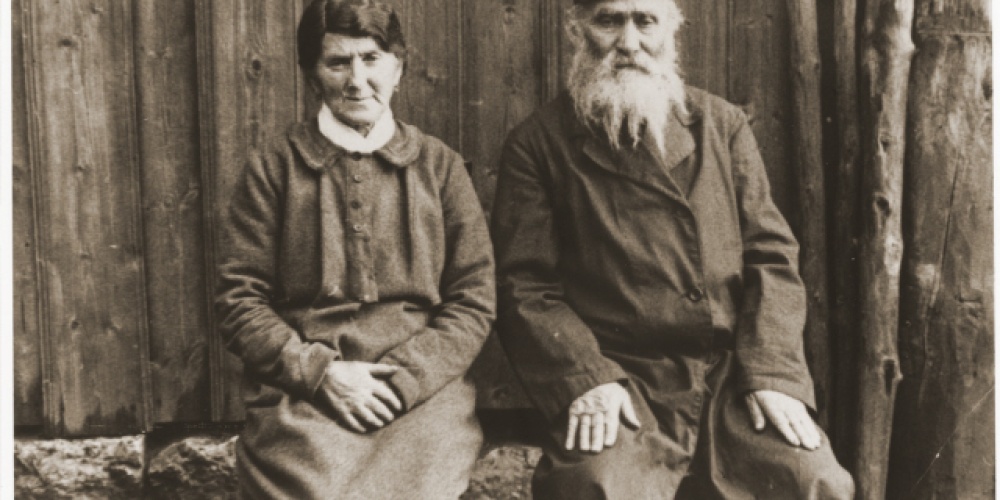Finding the proper balance between work and family is a challenge that man has been dealing with since the beginning of time. There never seems to be enough time to do all that needs to be done. In our daily rush and attention to our multifold duties, we often neglect those most close to us.
The Torah, most brilliantly, has a specific obligation of onah. While popularly known as the obligation of conjugal rights, its most basic application is the requirement of spending time with one's wife. This obligation varies depending on various factors, most importantly one's work duties. The obligation of onah ranges from every day for tayalim, those who have much leisure time to stroll around town with few worries, to once every six months for sailors whose journeys take them away from home for long stretches of time (Ketubot 61b).
Such a lengthy hiatus can be allowed only with the approval of one's wife, either explicit, or implicit by agreeing to marry one involved in such an occupation. That such is the case is evident from a fascinating but most common question. "A donkey driver who becomes a camel rider, what" is the law? (Ketubot 62b). The obligation of onah for a donkey driver, who would travel to bring produce from surrounding villages, was once a week; whereas a camel driver[1] who travelled further distances had an obligation of onah only once a month. Most germane to the Talmudic discussion is the fact that by changing jobs, the husband would be getting a large pay increase. The Gemara succinctly replies, "a woman prefers one kav and tiflot, 'to have her husband with her' (Rashi) to ten kavim and separation".
A kav is a field with an area of approximately 900 square feet and, while modest, is enough to earn a basic living. For those who have no means of support, taking a job--any job--takes precedence. But once one's basic needs are met, spending time together is the desire of most stay-at-home wives.
The requirement for the wife's approval before making a major career change impacting on one's available time and/or lifestyle is not new. It is even indirectly referred to in the Haggadah of Pesach. "Rabbi Elazar ben Azaria said: Behold, I am like seventy years". As the Talmud (Brachot 27b-28a) explains, Rabbi Elazar ben Azaria was actually only eighteen years of age, but aged very rapidly upon being appointed the Nassi, President of the Sanhedrin and leader of the Jewish people. When approached to accept the position, his immediate response was "I will go and discuss it with the members of my household".
Interestingly, his wife, perhaps with a better understanding of the difficulties of leadership--not to mention the impact on family life--recommended that he reject the offer. "Perhaps they will impeach you[2]", she argued. How often has a leader been urged to take a job, only to have those who begged him to accept it turn on him! Yet in a beautiful sentiment reflecting the tremendous privilege to be a leader of the Jewish people, Rabbi Elazar ben Azaria responded, "Let a man use a cup of honour for one day, even if it be broken the next". True, one may not be appreciated and may be mistreated, but to serve for even one day is the greatest of honours. When she responded that he was too young to be accepted, a "miracle"[3] happened and he grew eighteen locks of white hairs overnight. Appearances do matter.
It is not at all clear that his wife actually agreed that taking the position of Nassi was the correct decision, or agreed only because she saw how her husband desired the job. But such matters little. What does matter is that decisions by the husband or the wife are discussed, debated if need be, and a resolution satisfactory to all in the family is reached. It is not an easy task to balance the need for time, money, and job satisfaction in a spirit of Shalom Bayit. But that is what marriage is all about.
[1] In another demonstration of the beauty of the Hebrew language, a camel is known as a gamal, to give to others, as in gemilut chasadim. Able to take people on long desert journeys without needing provision for water, the gamal is the symbol of kindness.
[2] Rabbi Elazar ben Azaria was approached as the "compromise" candidate after Rabban Gamliel was (temporarily) impeached for embarrassing Rabbi Yehoshua on three separate occasions.
[3] While the speed in which Rabbi Elazar ben Azaria "turned grey" may have been miraculous, such greying is most commonplace for many a leader where the pressures of the job cause rapid aging.

